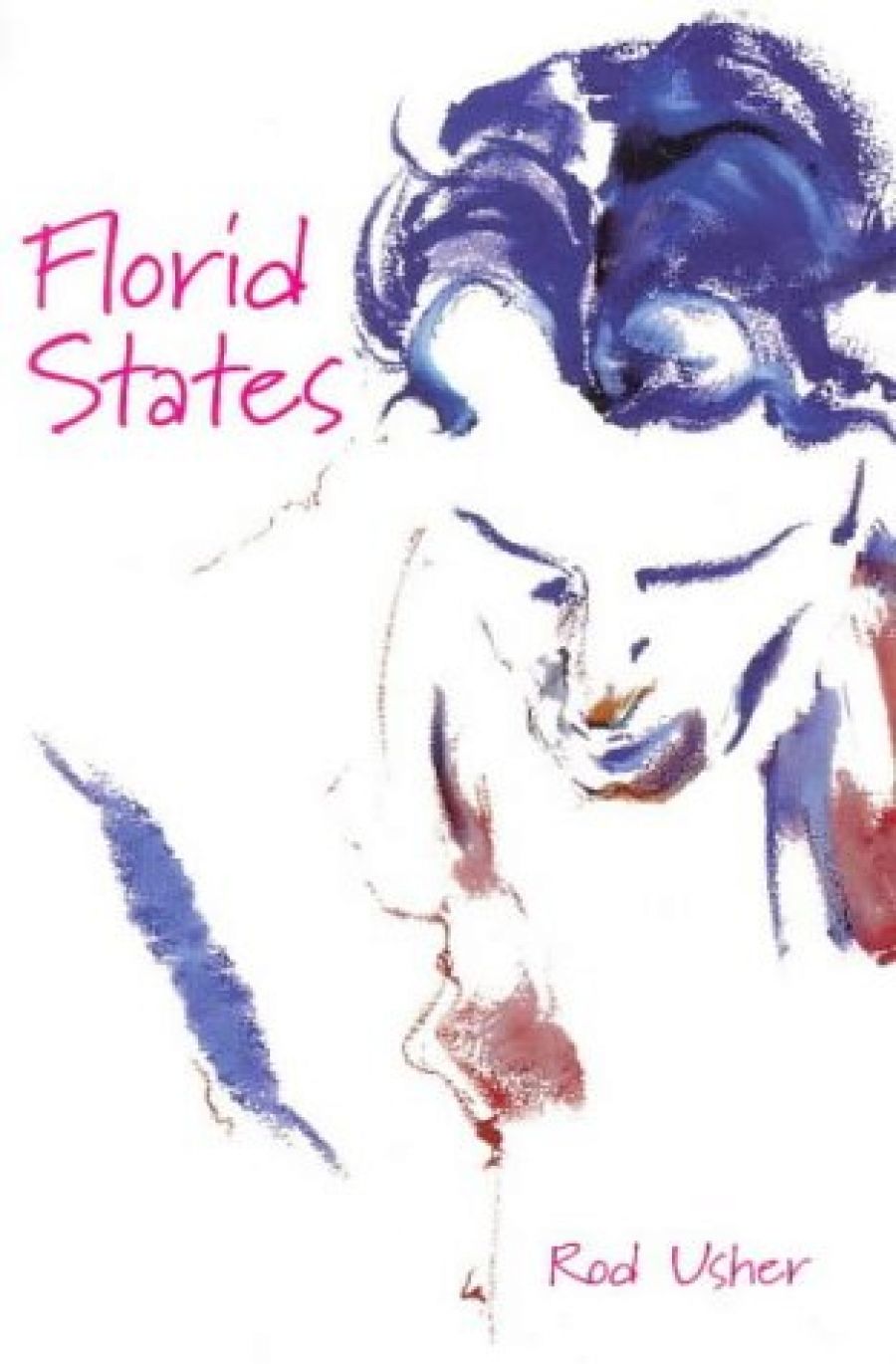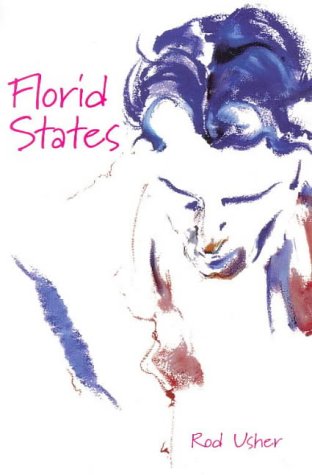
- Free Article: No
- Contents Category: Fiction
- Review Article: Yes
- Article Title: Issues too sensitive for this style
- Online Only: No
- Custom Highlight Text:
I must acknowledge that in his second novel Rod Usher, author of the widely praised Man of Marbles, tells a good story. And he tells it competently, with some verve. The high points are nicely judged and well-spaced. The characters are drawn with firm lines. The setting – the countryside around the Condamine – is well integrated into a narrative which moves to a striking climax. The novel should enjoy some success and may well become quite popular.
- Book 1 Title: Florid States
- Book 1 Biblio: Simon & Schuster, 29l pp, $29.95 hb
- Book 1 Cover Small (400 x 600):

Its first ten pages contain far greater imaginative strength and intellectual coherence than all of the rest. They deal with Ned Quinn, a gentle and sensitive man in his late thirties adrift in a large city – Melbourne – listening to and fighting off insistent voices that cajole, warn and threaten. He suffers from schizophrenia. Usher’s account of his character’s predicament is finely controlled, sympathetic without being mawkish, and capable (within the confines of a workaday style) of bringing that predicament to life.
On page thirteen the action (as it has to be called) switches to the Overton Valley on the Condamine, and to the loose community of former city dwellers who have gone bush for one reason or another, united by their common disdain for the rat-race, the polluted, hysterical world of urban Australia. At this point, Florid States descends into cliche and into the subjugation of its concerns to the demands of storytelling and fairly conventional entertainment.
Jennifer Duncan, who had moved to the Condamine after the collapse of her marriage, becomes the victim of a seemingly harmless practical joke played on her by the Vickers, her closest neighbours and friends in this free-wheeling community of subsistence farmers, marijuana growers and apparent devotees of ‘non-judgemental’ lifestyles. Lorna Vickers - destined to be the chief antagonist in the novel – places an advertisement in Jennifer’s name in the lonely hearts column of something called Grass Roots. The prank misfires when Jennifer enters into correspondence with Quinn and invites him to visit her.
By this stage of the novel we are in miniseries land. Quinn’s arrival coincides with the still-birth of Lorna’s baby, the occasion for a massive dose of post-natal depression that prompts Lorna, despite the vigilance of her sensible, kindly husband Henry, to lead the campaign against the presence of Quinn, a dangerous maniac in her view, in this outback Arcadia.
For the remainder of the novel, it seems to me, the engineering of incident, surprising revelations, and twists and turns of plot take precedence over all else. Quinn’s schizophrenia becomes merely a device for generating interesting and suspenseful confrontations between the increasingly hostile and vindictive valley-dwellers on the one hand and, on the other, Quinn and Jennifer, who are totally bereft of allies save for the largely ineffectual Henry and a woman called Hilda Jones, a Queensland version of Ma Kettle. The characters have no life, no independence - they respond mechanically to the circumstances of the plot. Their speech is almost uniformly flat and undifferentiated. The laconic Hilda becomes a dea ex machina. A woman, we are assured, of spirit, sympathy and moral sense, trapped in the prison of illiteracy and of marriage to an appalling husband, she is reduced to playing the role of the friendly native from old adventure stories.
Schizophrenia, post-natal depression and the predicament of people like Jennifer - who had to suffer seeing her daughter die in a car accident - are too important, too sensitive issues to be put to such use. After those opening ten pages we never ‘get inside’ Quinn (or any other character) in a way that would convince me that the novel represents an attempt to present this sad and disturbing situation - the prejudice of ‘progressive’ people, as much as Quinn’s malady- an intellectually and imaginatively valid terms. And the reason for that - or perhaps its symptom - is another aspect of the novel that I found particularly displeasing. Usher knows how to write decent English; he is fluent and grammatical. But he employs a diction which verges on vulgarity. I do not mean by this the descriptions of the various sexual bouts between Quinn and Jennifer - the first while they are bathing in the Condamine.
The vulgarity I find objectionable resides in the smooth, almost mechanical employment of images, metaphors and sentence-patterns that seem to me to have emerged out of the well-lubricated practices of formula-writers.
Take, for instance, the following sentence:
The erogenous peaks of the morning with Quinn by the Condamine hat flattened to this unarousable plain around her as she drove, heat and light slowly haemorrhaging from the day.
Elsewhere we read of ‘tumescent dawns’, ‘erogenous time-zones’, and the Condamine is likened to a ‘sexual river’. Questions hit the characters like a ‘charge of electricity’; there is a ‘stand-off between cautious and impulsive forces’; Lorna Vickers is ‘awash with hurt’. Occasionally we meet echoes of ancient rhetorical formulae, shopsoiled remnants from the literary bazaar: the sun is observed ‘pushing off the bedclothes of the night’; we are told about ‘shattered-glass dawns, kiln-fire noons, tepid-milk midnights -the valley’s dictatorial sky, sometimes despotic, more often benevolent’.
In all this, poor Quinn, poor Jennifer and indeed poor crazy and vindictive Lorna Vickers somehow seem almost redundant. Florid States was, I suspect, a powerful short story that, having grown into this novel, fails to satisfy any but the most basic of literary standards.


Comments powered by CComment